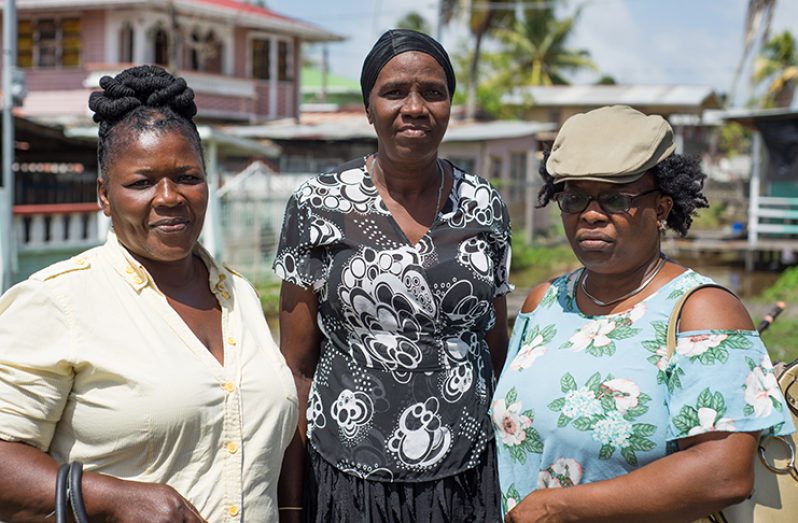This week on Focus on the Village, we bring you stories from Ann’s Grove, East Coast Demerara (Stories by M Margaret Burke)
REARING chickens is not a ‘run of the mill’ business. There are challenges and sometimes real setbacks, especially in the early stages of such a means of livelihood.
Many such challenges have been presented to poultry-rearers Nalecia Adams, Nicola Lewis and Gwenette Gilbert. However, all of these women have stated that they have no plans to ‘throw in the towel’.
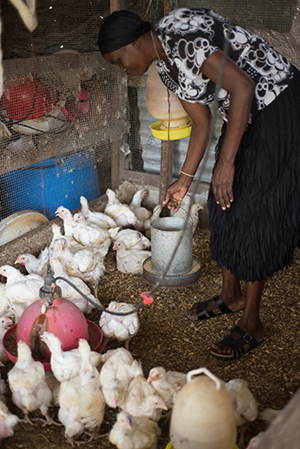
All of the women said that they got into the rearing of chickens as a means of being self-sufficient and, to be able to adequately maintain their homes and take care of their children.
They stated that some of the first considerations were for them to ensure that they had properly-fenced yards, strong and secured coops and sufficient eating and drinking containers for the chickens to be fed regularly.
NOT AN OPTION
“Then sometimes you gain, sometimes you lose. And, as a single parent – after my husband died some 22 years ago, having to maintain three children and bills to pay, sometimes it is very, very difficult,” said Gilbert.
She added that while she has gotten an ease since the children are grown now, she still needs to assist the youngest one and upkeep herself, manage a home and other matters.
She, however, noted that she is not about to give up on the business of rearing chicken, even with the regular challenges that she faces – that is not an option. When the Pepperpot Magazine visited her business – Gwenette Poultry Farm – two of her chicks lay dead at the door, while one appeared to be on its way out. On the other hand, the rest of them seemed in good health as they moved about eating and drinking.
STARTED AS A BUTCHER
Gilbert said that she started out some years ago as a butcher. Having the determination to make it in life and see her children grow well, after their father departed, she told of how she learnt the skill of being a butcher.
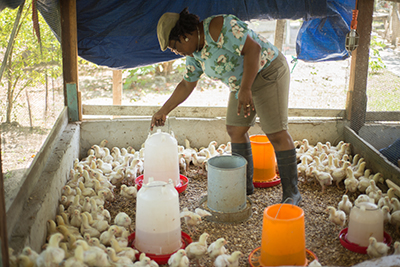
“I would purchase the cows and butcher them myself; cut up the meat according to how they should be divided – based on the parts of the body and so on, and then present the meat for sale. It was no easy task, but I did it for some years and then I gradually stopped with that business and went fully into the rearing of chickens,” she said.
Gilbert said that the chicken business provides a steady turnover for her, notwithstanding the fact that she encounters some amount of losses in the form of chickens dying and having to be dumped.
DISEASES AND PARASITES
Some of the chickens getting sick or dying are two major problems identified by all of the women involved in the rearing of chickens. And Nicola Lewis, a widow for the past four years, is one such person. She said that she has just started the poultry-rearing for a year now, but finds it difficult to cope with the death of some of her chicks.
She stated that she has tried discussing the loss of some of the chickens with the persons who sell the chicks, but they take no responsibility for what has been happening. She pointed out that of 200 chickens reared in December, she lost about 40 of them, plus the feed is so costly, she added.
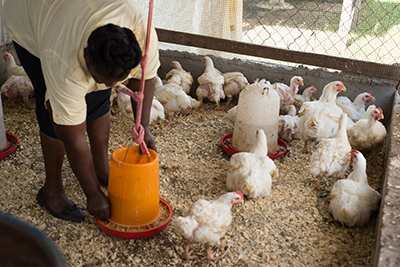
“I was trying to give up but then, like Gwenette, I said that giving up is not an option,” even as these words were echoed by the other women present.
Nalecia Adams identified the cost of feed and the loss of some of her chicks as two of her major problems. She said out of 150 chickens she lost about 30 of them.
“While I have no plan to give up on the rearing of these chickens I would like to find solutions to this particular problem. Among ourselves, we do try to find solutions and sometimes with advice we succeed, but we will be happy to get even more assistance in this and other matters,” she posited.
However, Adams admits that with all the challenges and also because she is relatively new to the business she is still finding it feasible and enjoying the work.
GENERAL CONCERNS
All of the women stated that while they are happy to continue and have no plan to give up, yet they would we equally happy to see greater improvements in their business. They identified facilities such as better built and larger coops for the rearing of their chickens; plucking machines, and better storage facilities.
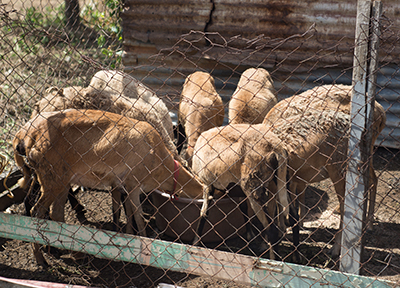
Meanwhile, each of the women said that they subsidies their income by way of kitchen gardens, baking and cake decoration, as well as by making flour and sugar confectionaries. (mercilinburke2017@gmail.com)



.jpg)



